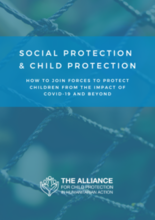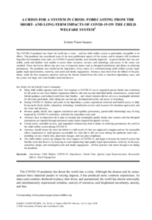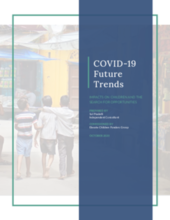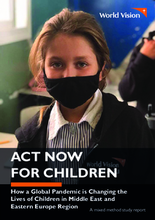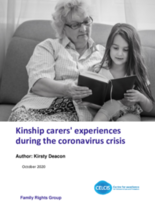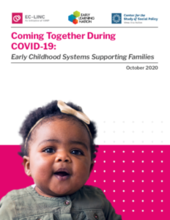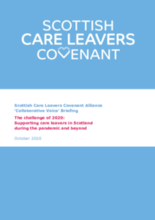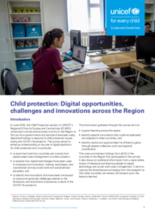This section includes resources on the response to the COVID-19 pandemic as it relates to child protection and children's care.
News on COVID-19 and Children's Care
Webinars and Events on COVID-19 Response
Displaying 221 - 230 of 756
The objective of this guidance is to lay out key arguments for close collaboration across Social Protection and Child Protection to address the socio-economic impact of COVID-19 on children and families towards reduction of adverse Child Protection outcomes.
In this commentary, the authors explain how current circumstances reinforce the need for systemic change within statutory child welfare systems and the benefits that would accrue by implementing a continuum of services that combine universal supports with early intervention strategies.
The objectives of this study were to describe the mental health status and the change in perceived strain among caregivers of children with special needs in India during the COVID-19 outbreak.
This article calls on attorneys in the U.S. to learn from the fallout of the pandemic, retain the best responsive practices, and use the lessons learned from this crisis to transform dependency cases, and the child welfare system writ large, into what families need and deserve.
In attempts to delineate the future impacts on today's children, this paper analyses the COVID-19 crisis as a dynamic phenomenon that shapes children's lives well into adulthood, with age and gender considered key influencing factors. It examines the impacts from previous crises and the available data to build prudent assumptions about the present situation and outlines four scenarios which provide opportunities to identify potential levers for positive change.
This research explores the stress children in World Vision programmes in the Middle East and Eastern Europe region are under due to COVID-19.
A survey was administered to develop a better understanding of the experiences of kinship care households in the UK as a result of the Coronavirus crisis, and what urgent steps could be taken by Government, local authorities and other agencies to help. This supplementary report provides an in-depth analysis of the kinship carers in Scotland and provides the legal context to influence national and local kinship care policies, practices and services of local authorities and other public agencies.
This brief discusses how the infrastructure and partnerships EC-LINC communities have developed over years of building their early childhood systems have allowed them to address the needs confronting families with young children during the COVID-19 pandemic.
This briefing paper aims to highlight some of the key issues and some of the solutions that have been identified through regular meetings of the Scottish Care Leavers Covenant (SCLC) Alliance during the COVID-19 pandemic, drawing together learning from their own work and extensive networks with partners to offer a number of recommendations, and to prioritise steps to improve the lives of care leavers.
This report presents findings from a survey conducted across the Europe and Central Asia Region which aimed to enhance understanding of the use of digital platforms for child protection.

